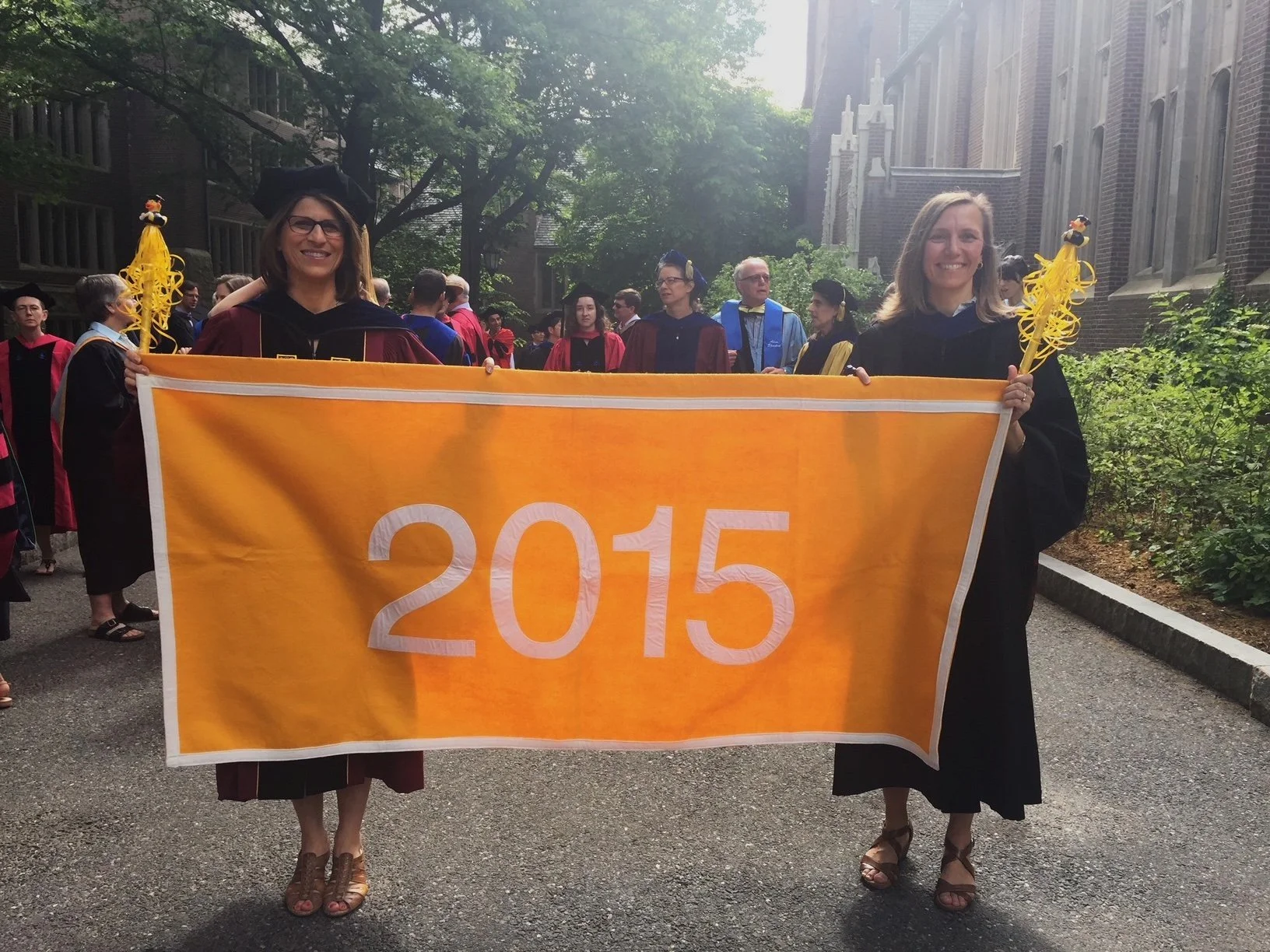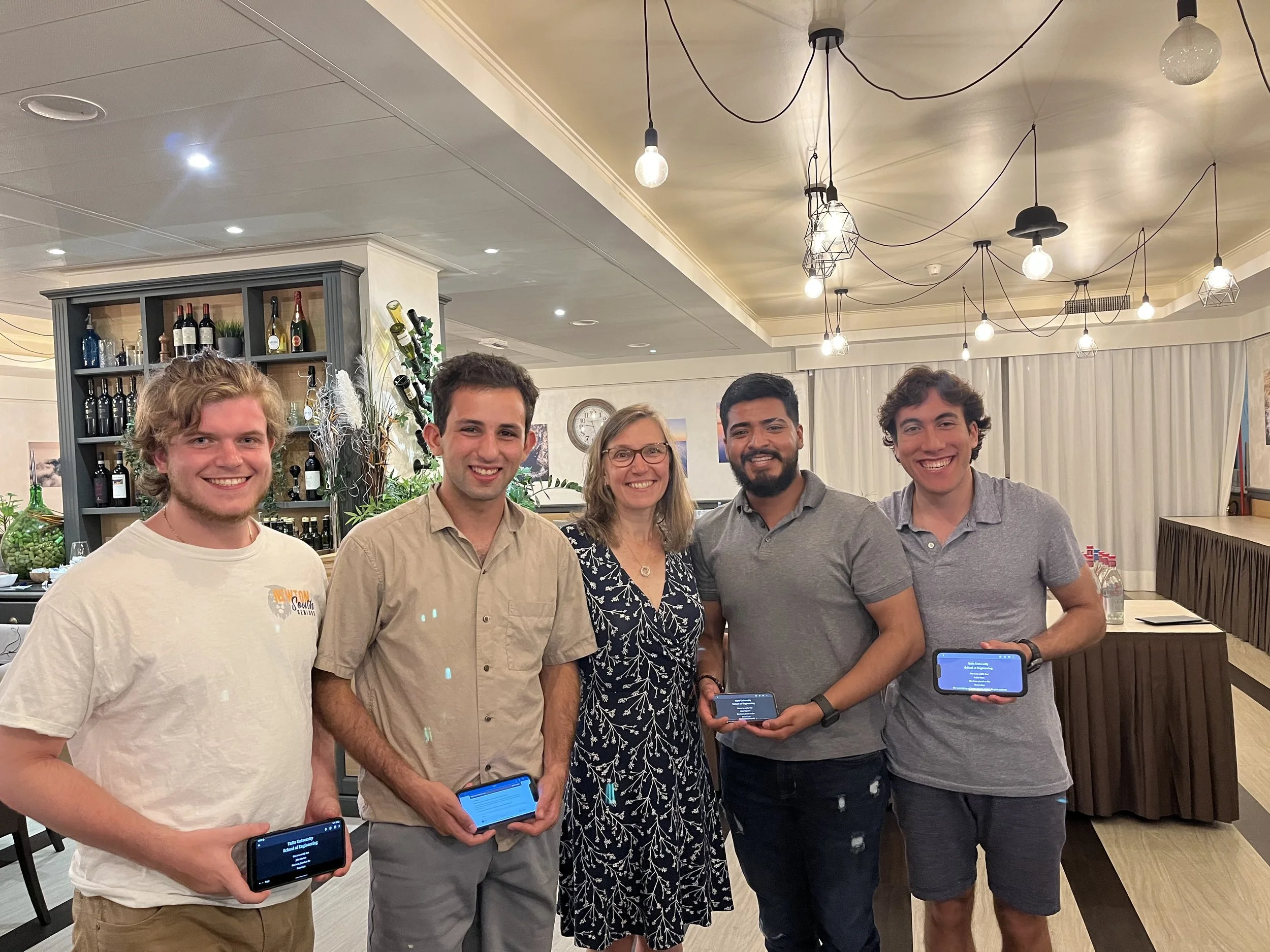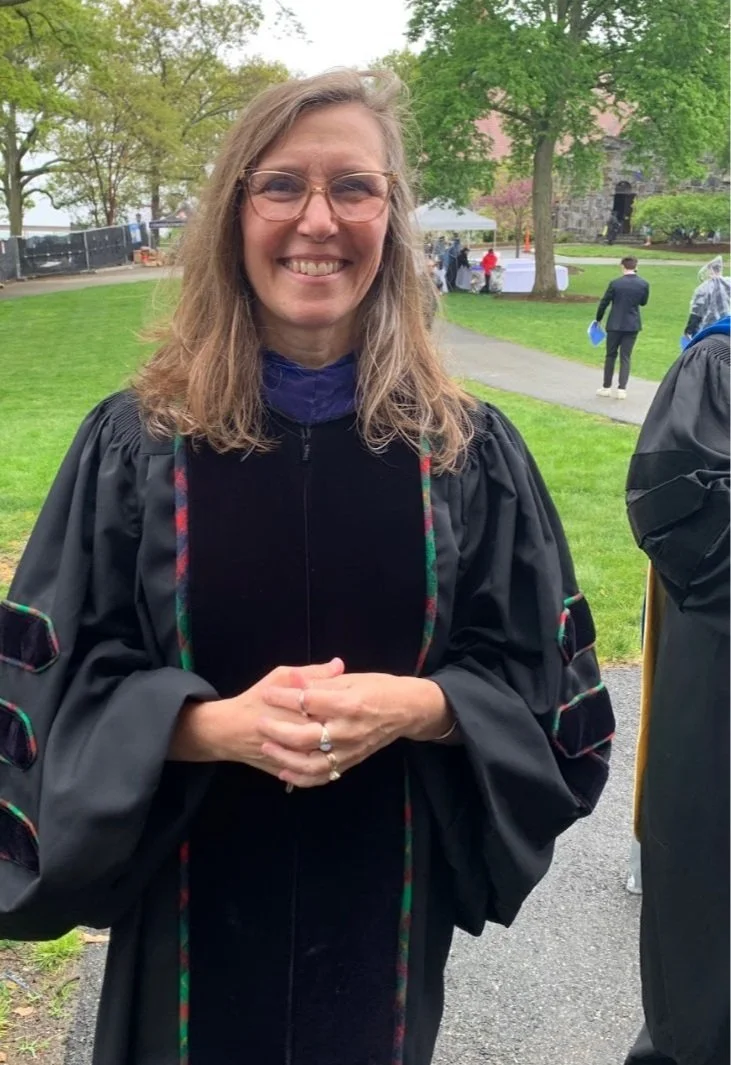A Guide for Academic Families Navigating the College Search
First-Year Dean Lori Tenser and Class of 2015 Dean Jennifer Stephan leading the faculty procession at Wellesley College's 2015 Commencement Exercises
Lantern College Counseling is trusted by professors and deans at MIT, Harvard University, Johns Hopkins University, Tufts University, Boston University, Wellesley College, Barnard College, Case Western Reserve University, Drexel University, the University of Pennsylvania, and the University of Maryland. Approximately a third of Lantern’s families are academic families.
Why do so many professors and deans specifically choose Lantern’s Deep-Fit college counseling process for their children? The answer lies not only in the emphasis on academic success but in the shared value of an entire educational journey. Professors and deans know the deeper, nuanced reality of higher education: it is more than getting accepted to an institution; what matters is what happens once the student arrives and how they thrive on campus.
My fellow academics - deans and professors - know the joys and rewards of an academic life. And, of course, they also value higher education - after all, they, too, have dedicated their lives to the academy. But more importantly, those of us who work on college and university campuses supporting students have a profound understanding of the true essence of higher education. We recognize that a student’s college journey begins after acceptance, and what is important is what they experience and achieve while in college.
The Transformative Potential of Higher Education
An academic life is rewarding. My favorite day of the year is the first day of the academic year each fall. The campus buzzes with excitement, promise, and potential as all the students return. When walking across the quad, the energy is palpable and infectious. My very first first day of the academic year was when I matriculated at Johns Hopkins University as an undergraduate. Since then, there have been almost forty more first days. You could say that I’ve never left college.
For over three decades, I have built and led an academic life. After completing my undergraduate degree at Hopkins, I went on to earn my PhD at Carnegie Mellon University. Then, I became an Assistant Professor of Computer Science (CS) at Wellesley College, a role I held for fourteen years. On one of my last days in the CS department, before moving into a class dean role at the College, I arrived at work to see a trail of colored construction paper footprints leading down the CS corridor to my office. My students had traced the footprints, cut them out, and adorned them with kind sentiments such as,"Thank you for leaving your mark, Professor Stephan!" I later carefully retrieved those footprints and still have them safely tucked away.
A few years later, I opened my dean’s office door at Wellesley College to see a dozen bright balloons and sticky notes with all sorts of doodles and funny quips on every surface - a colleague had let some students in to decorate my office! They had covered my desktop computer screen with sticky notes to create a giant smiley face, and the little penguin on my desk, which a past student had gifted me, had a note next to it saying, “Hi, penguin!” My favorite was the little note tacked under a plaque on my wall that says “Here’s To Good Women, May We Know Them, May We Be Them, May We Raise Them”. The note said: “We are them :)”
I remember an international Wellesley College student once saying to me, “One day, I will either be president of my country or this college.” And I believed her. I still do. I can’t wait to see which! I believe I learn as much from my students as I teach them. I'm grateful for all the students who've shared their lives with me, allowed me to guide them, and all the lessons I've learned while doing so.
It is a privilege to be surrounded by young adults as they develop their identities and to participate in this process. It is a gift to engage with the hopeful optimism of youth regularly and to have a role in their realizing their dreams.
Deep-Fit™ Centers the Transformative Potential of Higher Education
Deep-Fit was created for those who share a belief in the transformative power of education. It's for families who know that a true educational journey goes beyond rankings or standard criteria like size, location, or rankings. Deep-Fit focuses on guiding students to environments where they can have the most impactful and formative experiences academically, personally, and socially.
My PhD in electrical and computer engineering empowered me to choose many paths, but my dedication to higher education was fueled by the same values that drive so many educators, parents, and students today—a commitment to helping students thrive. My choices have been guided by answering the same questions that I pose to students: What do I love? What am I good at? What will positively contribute to the world? Deep-Fit is grounded in a simple truth: education has the power to transform lives, and our role is to guide students to that transformation.
Jennifer with four proud Tufts engineering students who she supported as Dean of the School of Engineering, finding out they made the Dean's list while on a study abroad program that Jennifer created in Pavia, Italy.
The Deep-Fit College Search and Application Process
Deep-Fit is a new paradigm for the college search and application process centered on thriving as a foundation for lifelong success, developed through my decades of experience supporting college students. At a Deep-Fit college, students can achieve their personal and academic goals, have impactful experiences, thrive, develop confidence and agency, and lay the foundation for a successful life.
Most college search guidance is about identifying a good-fit school that meets the student’s general criteria, such as location, size, and academic and social opportunities. These criteria are objective and concrete factors and independent of any given student. For example, consider this recent NY Times tool, which allows students to build their own rankings based on earnings potential, cost (sticker and net price), academic profile, party scene, diversity (racial and economic), potential for economic mobility, athletics, and campus safety.
With the concept of Deep-Fit, choosing a school isn't about chasing prestige, US News and World Report rankings, or aligning with standard metrics like location, size, or academic profile. These factors are important to consider, of course, but Deep-Fit is more than this. After all, two schools with similar size, location, and academic and social opportunities are not the same, and a student might have vastly different experiences at them. Research shows that the "big six college experiences" have a stronger relationship to long-term life outcomes than the type of school from which students graduate. Another way of saying this is that what a student accomplishes at a school is far more important than its ranking and selectivity.
What is a Deep-Fit College?
A Deep-Fit college is a good-fit college where a student will have the opportunity to have positive, impactful experiences, meet their specific academic and personal goals, thrive, develop confidence and agency, and lay the foundation for a successful life—to create their future.
Every school offers impactful experiences. However, not every student will connect with them. Some schools provide a higher likelihood of that particular student thriving and having these enriching experiences—these are known as a student’s Deep-Fit colleges.
Identifying Deep-Fit Schools Makes Stronger College Applications
Every college and university wants to admit students who will thrive on their campus. Beyond demonstrating interest, a Deep-Fit application is powerful at all institutions, even those that do not track traditional forms of demonstrated interest, because it shows a school that the student has the potential to thrive within their community.
Institutions are overwhelmed with talented applicants, so they have the liberty to pick and choose among them. A Deep-Fit application compellingly differentiates a student from others with similar grades, courses, test scores, and activities who have not deeply researched the institution and have not shown that they are a Deep-Fit. A Deep-Fit application helps an admissions officer see the student on their campus, contributing and thriving.
At Lantern, we build a customized college list of good-fit schools for each student based on our work and what we’ve learned about what they seek and value in their college experience. We then guide students to determine which of these good-fit schools are a Deep-Fit for them. What questions should they ask and answer to know if a school is a place where they can have positive, formative experiences, meet their specific academic and personal goals, thrive, gain confidence, develop agency, and lay the foundation for a successful life—to create their future?
Why Professors and Deans Choose Deep-Fit
With its focus on a rich college experience, Deep-Fit resonates deeply with higher education professionals. Professors and deans know through their daily work with students that the college search process should not be about chasing rankings or superficial factors. They know that it isn't all about getting in - it is about what happens during college.
At Lantern, in our roles on college campuses, we’ve worked with students who thrive and those who do not. We’ve supported students who soared brilliantly in college and for whom Wellesley or Tufts was never a fit. We have seen firsthand that attending a school that isn’t a fit can lead to a complicated, messy college experience that impacts the student’s future options. So, we know that admission is not the end; it is just the beginning. We know it isn’t all about getting in but what happens during college. We profoundly understand what thriving in college looks like and how to achieve it. And we fight for our students to have Deep-Fit.
What Educators Are Saying About Lantern’s Deep-Fit College Counseling Services:
“I am an Electrical and Computer Engineering professor at a university, and it was great to see a fellow engineer and accomplished educator when I attended your webinar yesterday. I was very much impressed and resonated with your Deep-Fit framework, focusing on a strong match for medium to longer-term success throughout college years and beyond (not just to get admitted to good schools for the present glory.) Both my husband and I attended our country’s top STEM school and did PhDs at Ivy League institutions. We see first-hand some of the benefits and caveats. It's not easy to survive and thrive in top schools and beyond!”*
“I am coming from a career with the Department of Higher Education in MA as a STEM success coordinator and now a parent of a senior. I think that Deep Fit is a really valuable approach.”
* small edits to protect the writers’ privacy and for clarity
Learn More
Review our Deep-Fit counseling services, learn about their value, and schedule a free consultation at the link below.





